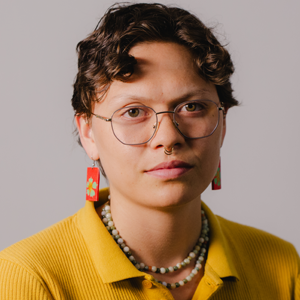
BELÉM, Brazil (November 22 2025)—The U.N. annual climate talks, also referred to as COP30, concluded this afternoon in Belém, Brazil after contentious negotiations went into overtime. Key issues at COP30 included efforts to close the gap in ambition of countries’ emission reduction commitments (also known as nationally determined contributions or NDCs); addressing adaptation needs, including funding for lower-income countries working to adapt to rapidly escalating climate impacts; a transition away from fossil fuels toward a clean energy economy, with finance for lower-income countries; and a just transition work program. Recent scientific reports have made clear that the world is currently on track to surpass 1.5 C of global warming and the final outcome of the talks—including the Mutirão political package—is not strong enough to seriously address this reality and protect people and the planet, according to the Union of Concerned Scientists (UCS).
Below is a statement by Dr. Rachel Cleetus, senior policy director for the Climate and Energy Program at UCS. She has been attending the U.N.’s international climate talks and has partnered with the international community on climate and energy policies for about 20 years. Dr. Cleetus attended COP30 in Belém, Brazil.
“The barely adequate outcome salvaged in the final hours of COP30 keeps the Paris Agreement alive but exposes the monumental failures of rich countries—including the United States and European Union nations—to live up to the commitments they made under that agreement.
“Scientists have warned that the world will soon overshoot 1.5 C of global warming. Yet richer countries—who are the largest historical contributors to heat-trapping emissions—continue to gobble up an unfair share of the rapidly dwindling carbon budget left to limit further dangerous climate change. Overshooting 1.5 C also has profound implications for escalating costly and deadly climate impacts, and for loss and damage people across the world are enduring.
“Although a roadmap for a transition away from fossil fuels did not make it into the text, it remains the case that countries already agreed to that transition two years ago in Dubai. In the final plenary, the Presidency made a rousing commitment to initiate a high-level science-based, inclusive process for developing two roadmaps, one on addressing tropical deforestation and one on a just, orderly and equitable transition away from fossil fuels. This important statement is a recognition of the immense support from countries for these urgent priorities, but they must be accompanied by finance and adopted at a future COP. The Presidency will also initiate collaborative processes aimed at improving fulfillment of countries’ emission reduction pledges and raising collective ambition to limit the overshoot of 1.5 degrees Celsius of warming.
“The Mutirão political package includes a nod to tripling adaptation finance, although the overall amount is unclear and will be well short of what’s needed, and the delivery date is punted out to 2035. There is also no firm assurance of public grant-based finance for lower-income nations. People in these countries are reeling from repeated blows from worsening climate impacts, primarily caused by richer nations’ emissions, as evidenced by the recent destruction wrought by back-to-back typhoons in the Philippines and Hurricane Melissa in the Caribbean.
“On a positive note, the COP30 outcome includes a very encouraging agreement to develop a just transition mechanism to help enable a fair, funded transformation to a clean energy future with social and economic safeguards for workers and communities. Real-world evidence shows that renewable energy and energy efficiency are winning solutions that help lower energy costs, cut pollution and protect people’s health. Decision-makers at all levels of government and forward-looking businesses should embrace the tremendous opportunity to accelerate global clean energy momentum because it is in everyone’s best interest.
“Despite many wealthy nations claiming to uphold the 1.5 C climate goal and a transition away from fossil fuels, their hypocrisy was on full display here in Belém as they refused to follow through on necessary actions and funding to make those words a reality. Rich nations’ emission reduction commitments are highly insufficient as they continue to be in the thrall of fossil fuels. They have also repeatedly lowballed and shirked delivering desperately needed finance for lower income countries to transition to clean energy, adapt to climate change and cope with loss and damage. Petrostates—including Saudi Arabia—and fossil fuel lobbyists also played a malign role in blocking ambitious outcomes here at COP.
“COP30 was supposed to be the COP of truth and implementation. Unless nations reckon with the ugly truths revealed here, there will be major repercussions for multilateral climate agreements and more importantly, for the lives of communities who are on the frontlines of the climate crisis. People around the world deserve far more from their leaders to meaningfully confront the existential threats brought forth by the climate crisis and advance a thriving, fair clean energy economy. The fight for climate justice does not end here because the fight cannot end here—the stakes are simply too high.”
Additional UCS Resources:
- Media advisory listing UCS’ COP30 experts available for interviews
- All blog posts related to COP30
- Statement on the International Energy Agency’s 2025 World Energy Outlook
- Statement on the U.N. Emissions Gap Report, confirming overshoot of 1.5 degrees Celsius
- Statement on the International Court of Justice advisory opinion on countries’ legal obligations to address climate change
- Statement on President Trump’s second withdrawal from the Paris Agreement